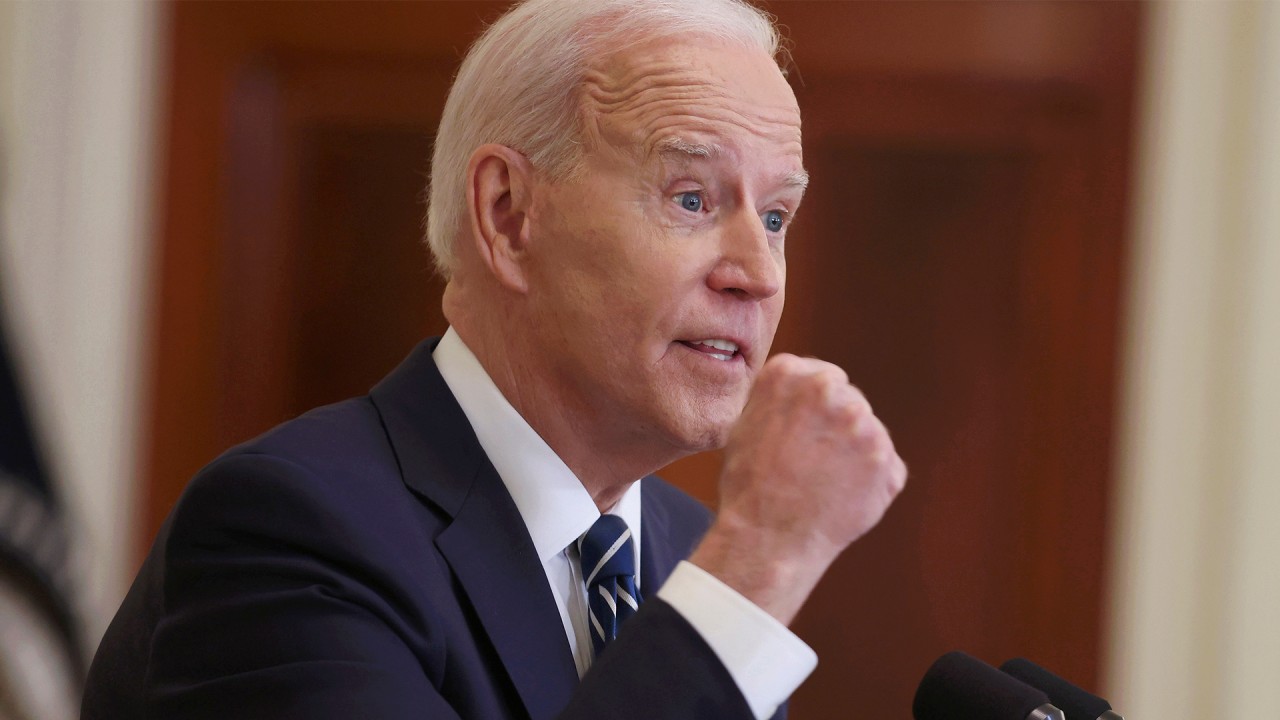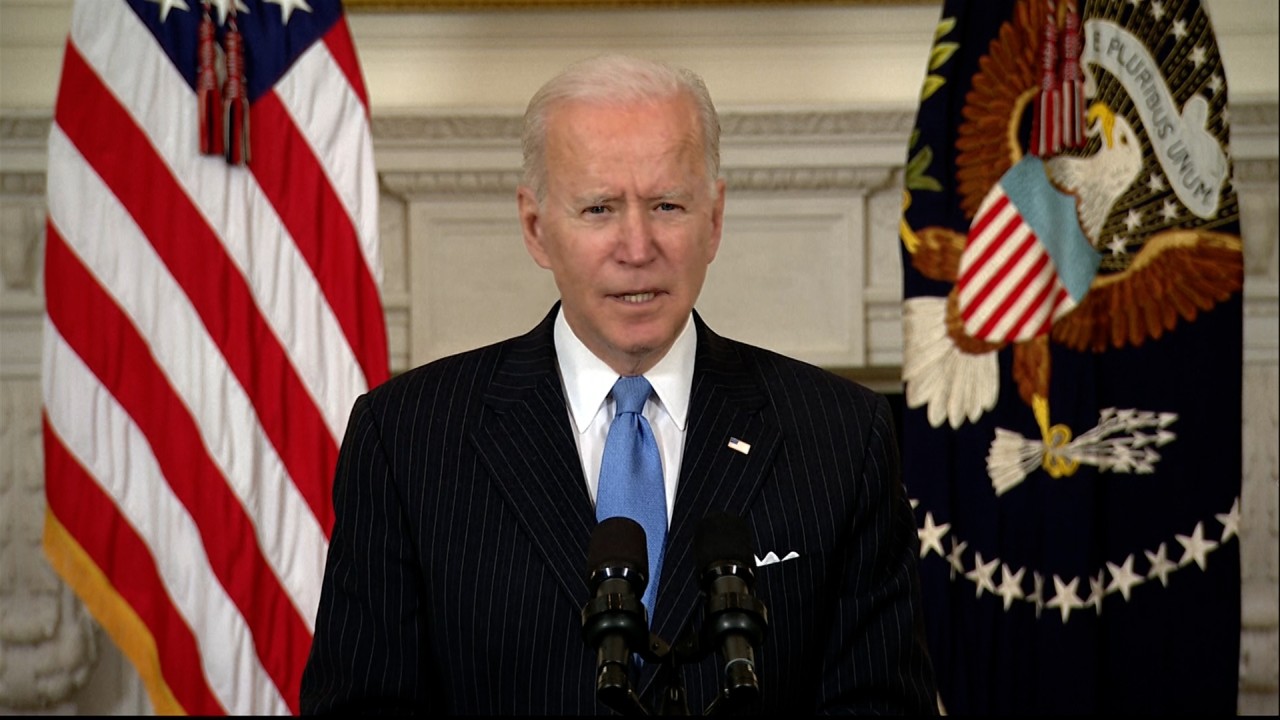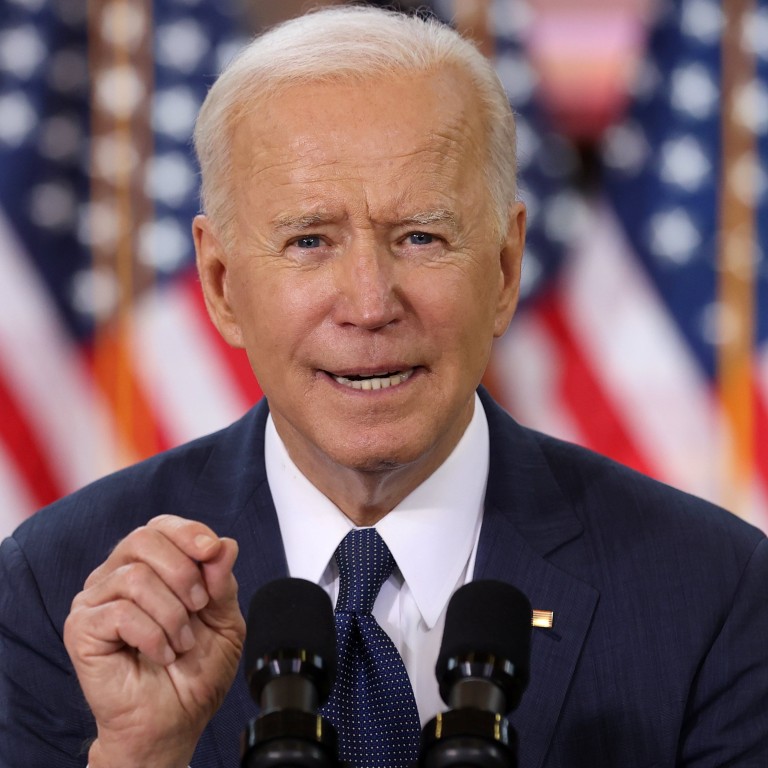
Joe Biden sets out US$2 trillion plan to boost US economy and challenge China
- The proposal aims to put millions of Americans to work building infrastructure, as well as to tackle climate change and boosting human services like elder care
- The plan, which increases corporate taxes and closes tax loopholes, was greeted icily by conservatives and major business groups.
US President Joe Biden on Wednesday called for a sweeping use of government power to reshape the world’s largest economy and counter China’s rise in a US$2 trillion-plus proposal that has been met with swift political resistance.
Biden’s proposal would put corporate America on the hook for the tab for projects putting millions of Americans to work building infrastructure such as roads as well as tackling climate change and boosting human services like elder care.
“It’s a once-in-a-generation investment in America, unlike anything we’ve seen or done,” Biden said in Pittsburgh. “It’s big, yes. It’s bold, yes. And we can get it done.”
Biden’s second multi-trillion dollar legislative proposal in two months in office aimed to provide support to an economy walloped by the coronavirus pandemic. It also promised to shore up labour unions and the country’s resilience to climate change, both long-sought liberal goals.
Another economic proposal Biden will release in April could add another US$2 trillion to the total price tag.
Coupled with his recently enacted US$1.9 trillion coronavirus relief package, Biden’s infrastructure initiative would give the federal government a bigger role in the US economy than it has had in generations, accounting for 20 per cent or more of annual output.
A government-directed effort to strengthen the economy is the best way to contend with increased competition and a national security threat posed by China, Biden’s team believes.
Boeing urges US to separate China trade and human rights
The effort sets the stage for the next partisan clash in the US Congress where members largely agree that investments are needed but are divided on the total size and inclusion of programmes traditionally seen as social services.
The president’s proposal was greeted icily by conservatives and major business groups.
“If it’s going to have massive tax increases and trillions more added to the national debt, it’s not likely,” said Republican Senator Mitch McConnell of Kentucky, the minority leader, one day after Biden called to brief him on the proposal.
Biden is ignoring a campaign promise to raise taxes on wealthy individuals, at least for now, with none of the expected increases in the top marginal rate or capital gains tax.
The plan would instead increase the corporate tax rate to 28 per cent from 21 per cent and change the tax code to close loopholes that allow companies to move profits overseas, according to a 25-page briefing paper released by the White House.
Biden said the goal was not to “target” the wealthy but to address divisions and inequality worsened by the pandemic.
The plan would spread the cost for projects over an eight-year period and aims to pay for it all over 15 years, without adding to the country’s debt in the long run, a senior administration official said.
Neil Bradley, executive vice-president and chief policy officer at the nation’s largest trade group, the US Chamber of Commerce, said while the organisation shares Biden’s sense of urgency on infrastructure, his plan is “dangerously misguided”.
Biden to let Trump’s H-1B visa ban expire in win for tech firms
“We strongly oppose the general tax increases proposed by the administration which will slow the economic recovery and make the US less competitive globally – the exact opposite of the goals of the infrastructure plan,” Bradley said.
The plan includes US$621 billion to rebuild infrastructure, such as roads, bridges, highways and ports, and a historic US$174 billion investment in the electric vehicle market that sets a goal of a nationwide charging network by 2030.
Administration officials also cast their goals in the language of addressing economic inequality created by racial discrimination, such as addressing air pollution that affects black and Hispanic communities near ports or power plants.
Congress will be asked to put US$400 billion toward expanding access to affordable community-based care for ageing Americans and people with disabilities. It is aimed at “underpaid and undervalued” workers in that industry, who are disproportionately women of colour.
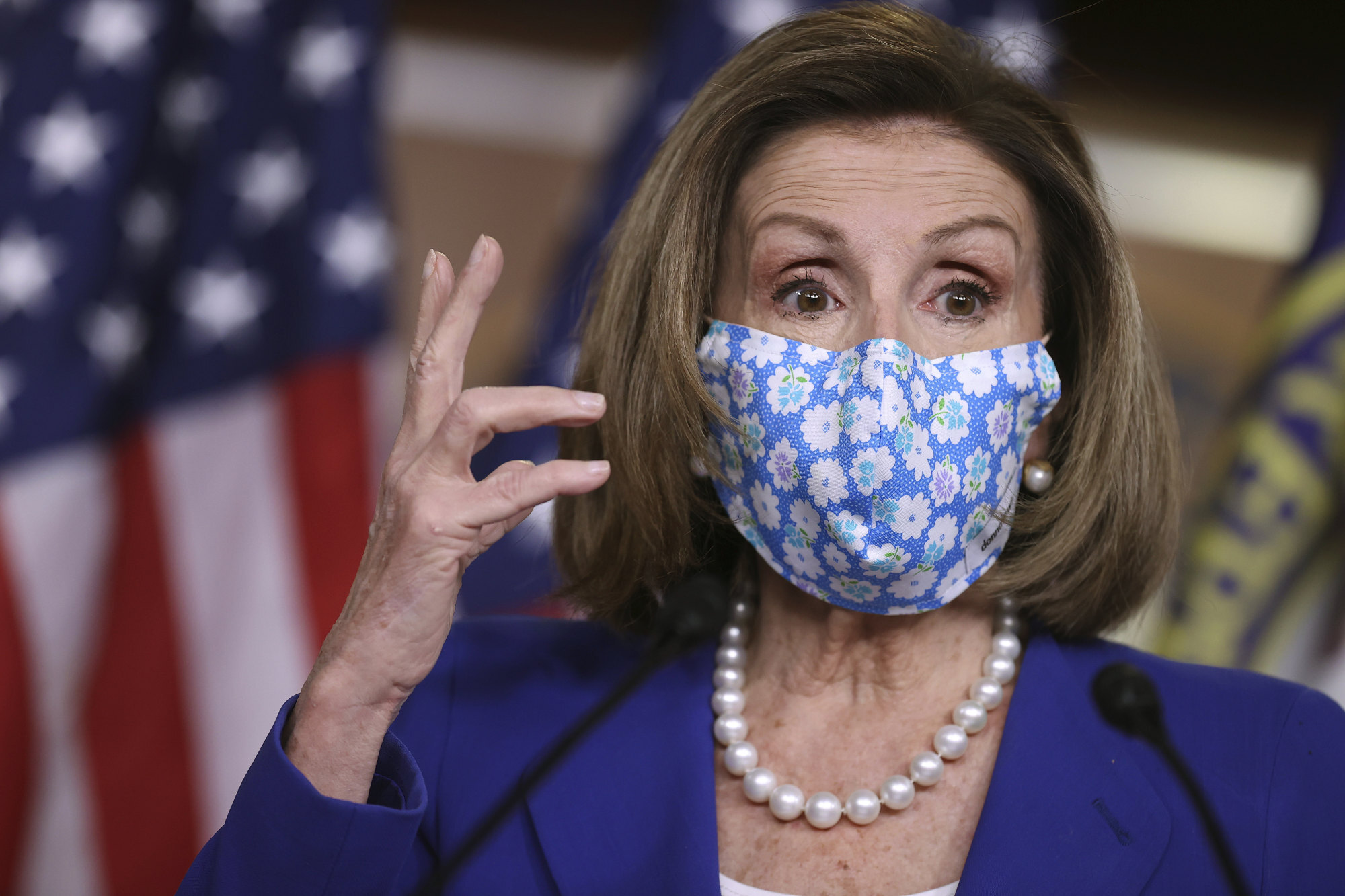
There is US$213 billion provided to build and retrofit affordable and sustainable homes along with hundreds of billions to support US manufacturing, bolster the nation’s electric grid, enact nationwide high-speed broadband and revamp the nation’s water systems to ensure clean drinking water.
Biden is moving forward with his package while attempting to deliver on promises to provide enough Covid-19 vaccines for all adults by the end of May. The White House is also dealing with a rise in the number of migrants at the southern border and fallout from back-to-back mass shootings.
The plan forms one part of the “Build Back Better” agenda that the administration aims to introduce. A second legislative package is due within weeks.
That package is expected to include an expansion in health insurance coverage, an extension of child tax benefits, and paid family and medical leave, among other efforts aimed at families.
New US trade rep reluctant to ‘yank’ China tariff ‘leverage’
House of Representatives Speaker Nancy Pelosi has signalled that she hopes to pass the infrastructure plan by July 4, though that timeline could easily slip as Democrats with narrow House and Senate majorities race to strike a deal on the details.
The jockeying has already begun, as allies push for inclusion of their priorities and Republicans signal early concerns about the package’s size and scope.
Moderate Democrats have said the package should be more targeted to traditional infrastructure projects to attract Republican votes, seeking a return to bipartisan policymaking.
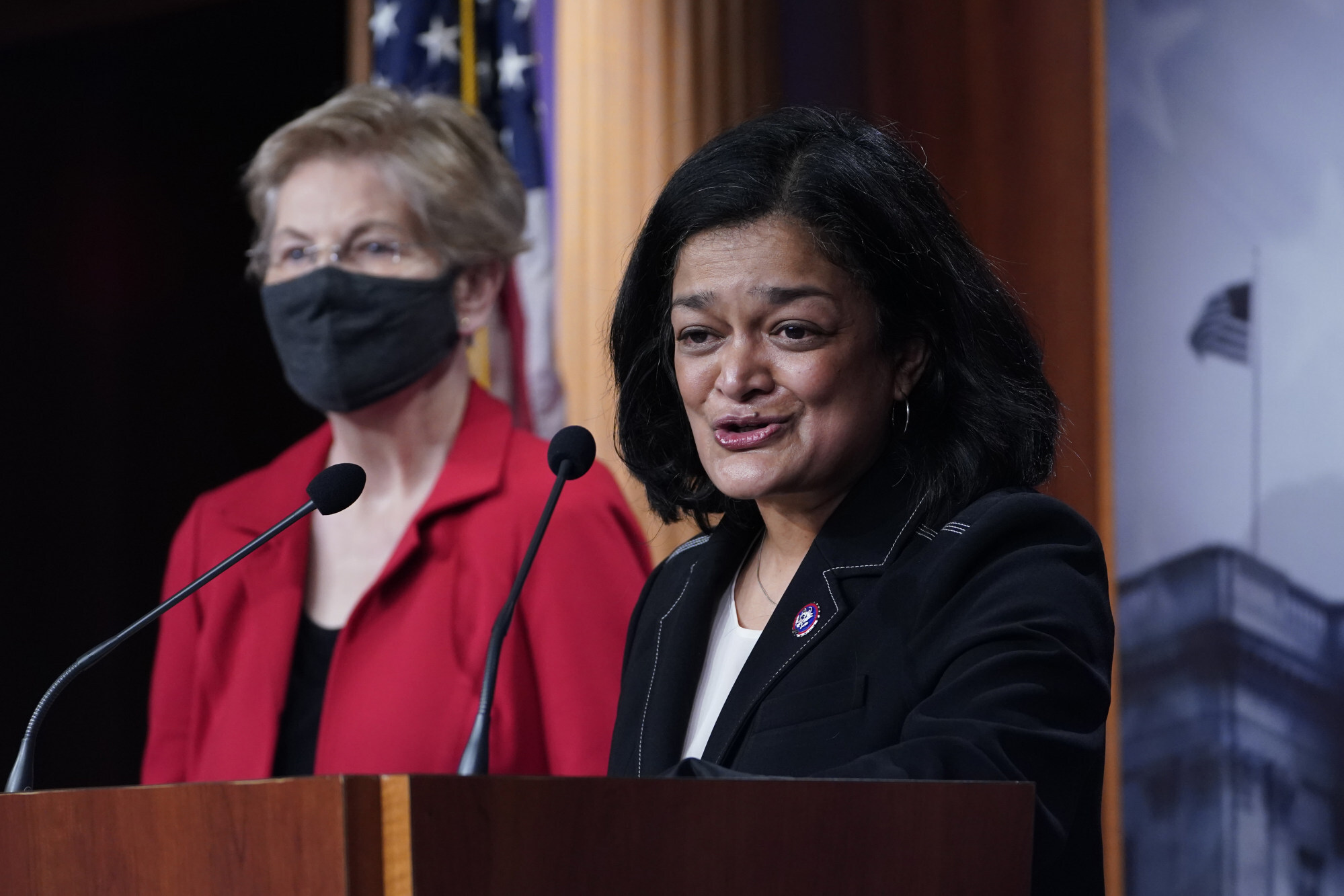
Liberal lawmakers want to tackle climate change and economic inequality with resources that reflect the size of those challenges.
Congresswoman Pramila Jayapal, a leading progressive Democrat, said on Tuesday that outside groups like Americans for Tax Fairness pegged the infrastructure and jobs plan that Biden rolled out on the campaign trail at between US$6.5 trillion and US$11 trillion over 10 years.
“We’d like to see a plan that goes big,” Jayapal said. “We really think that there’s ample room to get the overall number up to somewhere in that range in order to really tackle the scale of investments that we need to make.”


